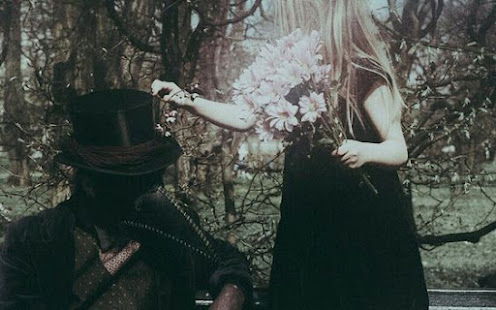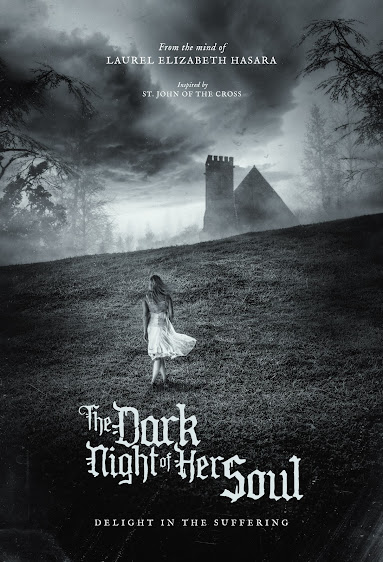INTERVIEW WITH A MORTICIAN PART 2
Interview with a Mortician Pt.2
This in-person interview commenced on May 11th, 2023 in a Worcester, Massachusetts funeral home with a licensed Massachusetts Mortician & Funeral Director who wishes to remain anonymous. She will be referred to by the name, Tiffany for the duration of this interview. The interview will be paraphrased & condensed down to its most meaningful points (meaningful only in regards to my screenwriting process).
The truth, however, will never be compromised.
Enjoy...
Q (Laurel): Describe to me your origin story; how did you get involved with the death industry?
A (Tiffany): It was a calling. I know it sounds strange to say that, but... yes, it was a calling. I began in cosmetology and barbering school first right out of high school. There, I was forced to attend different seminars on cosmetizing the deceased. I remember thinking, "well, who the heck would ever want to do that {cosmetizing the deceased}?" There was this funeral home in the center of my hometown {West Boylston, MA}. The men in all black would park their hearses in the lot and go inside. I always wanted to know what went on in there. I was drawn to it, but never told anyone. Of all the other things to look at in town, the nice grassy parks and whatnot, I always wanted to know what was going on in the funeral home. It was more of a passing curiosity than any sort of 'sadness' that I felt at the time. Back then {a couple decades ago}, you couldn't just log onto the internet and see death like you can now. When my father died, during his wake I was bothered by his hair. It was poorly done... in my opinion so, I called a local funeral home to see if they may ever need help styling the hair of the deceased. I had already been a barber for a number of years by then. That was my first profession, a barber. The original striped barber pole colors of blue, red and white symbolized bandages, blood and human veins. That was my inroad. I started volunteering doing hair at funeral homes part time and then I became interested in the whole embalming process, working with the body. In the state of Massachusetts, if you want to be an embalmer you are required to also become a funeral director so... eventually I went back to school & acquired both licenses.
"People are humbled by death."
Q (Laurel): Do you ever see families try to put on airs or displays of status during the funeral process?
A (Tiffany): No, actually. Not among Americans at least. In other cultures we've locally catered, there are such things as "hired mourners." A hired mourner is like an actor paid by the family of the deceased to attend a funeral and put on these very theatrical displays of grief like crying loudly and screaming, wailing. A big measure of a person's status in some of the Eastern cultures is how much grief is outwardly displayed at their funeral. But people in America are humbled by death... or so I've seen.
Laurel: "It's the great equalizer."
Tiffany: "Yes, that's a good way of putting it."
Q (Laurel): How do you personally cope being constantly surrounded by so much negative emotion, so much grief? Is it something you find comfortable? Like me, I consider myself a more serious person so, I feel at home most when I'm engaging serious subjects. I'm uncomfortable ~ radically so ~ when I'm in playful or comedic settings. Do you relate or have you had to gradually temper your personality to adjust to this line of work?
*I noted Tiffany's significant pause & drawn out sigh after I asked this question*
The medical examiner will classify their cause of death as "failure to thrive," which really means "broken heart."
A (Tiffany): I've tried to come up with a balance... being around grieving 24/7. I honestly haven't found it yet. I'm only three years into being a director... so, maybe in time that could change. Uh, I try not to get involved emotionally, but I really feel their grief. It's a weight. I can't seem to separate it. It makes you question your own mortality and beliefs. Like... I'm not sure this God is such a great God if he takes away people's children. When I sit across from a widow who has been married for 65 years and lived with this person longer than they haven't, "they look at you like, 'what do I do now'?" Very lost. I never know what to say. Often a widower passes away shortly after, usually within a year. They don't go on. The medical examiner will classify their cause of death as "failure to thrive," which really means "broken heart," but they can't write that on a death certificate.
Q (Laurel): Do you have people in your life to confide in about everything you see & feel?
A (Tiffany): In the industry, we are known to turn to the bottle, alcohol, to kind of quiet the thoughts and to... turn off my brain. I can't ever get my brain to turn off. My husband doesn't want to know anything about what I do. He doesn't like to think about death at all. I can't talk about anything with him. He will literally leave the room, just walk right out of the room if I try.
Laurel: Wow.
Tiffany: Yes, he's an in denial type of person.
Laurel: I'm sorry to hear that...
Tiffany: I was told to lie about being a funeral director when I first started. I did lie. You're out with some friends or at an event, a kid's sports game or whatnot and someone asks, "what do you do for a living?" The reactions would always fall into two categories, either revulsion or almost an inappropriate level of interest. They'd immediately want to know the most disturbing parts of the job. Like, have you ever seen someone sit up or move in the morgue, what does someone look like when they're dead, does their skin change color, what does death smell like, etc?
Laurel: I've actually had trouble getting funeral directors to describe the smell of death to me.
Tiffany: The smell of death is, uh... it's hard to describe. That's right. It smells like nothing else. The smell of burn victims if particularly the worse. I used to have to rub Vicks Vaporub under my nose while I was learning how to embalm. The more seasoned students and professionals would laugh at me.
Laurel: Is it like a version of hazing, seeing if a student can withstand the smell and poking fun at them when they can't?
Tiffany: Yes, it is like our little version of hazing. I don't use the rub now. I've long overcome the smell. You get used to it after a while.
Q (Laurel): What's something you've learned about human's relation to death in your three professional years?
A (Tiffany): I think it would be... how far people will go, uh... to maintain denial. Like they'll refuse to face it even when it has happened and is right in front of them. A loved one or even someone they don't have a close relationship with, but are still responsible for will die and they want absolutely nothing to do with the funeral decisions. They have no regard for human life or human dignity. There's a sort of 'get rid of it' or 'let's just get this done and move on' attitude rather than actually facing it, sitting with it and seeing it... death.
As soon as the brother saw his sister, he screamed and slamming the coffin shut. He told the director to "never open it again."
Laurel: You could look at it like the entire embalming process is one great act of denial in service of the living. It really only benefits the living... all of the cosmetics and facial reconstruction.
Tiffany: Yes, that's true. I have actually had some grieving people request to see a loved one's body despite us warning them of how graphic and unrecognizable they look. Despite our best efforts, hours and hours of effort, in the embalming room, some people are mangle beyond repair. A young woman, for example, had gotten run over several times on a highway. I was never given the full story, but it was bad and her skull was crushed along with the rest of her body. Her brother demanded to see her before burial. He wouldn't accept "no." We made him sign legal wavers, saying he basically accepted the trauma he was willingly exposing himself to by viewing her. When the bodies are distressingly mangled, we have to make the grieving party sign a waver to view them. Despite the warnings, the brother went through with it and signed the wavers. You know, we {morticians} see the deceased in all different states of decomposition and dismay so, if we are saying it's bad... people should listen to us. Well, after we built up the young woman's skull, make it round again and filled the holes in her face the best we possibly could, we placed her in the coffin. Only her brother and the funeral director had permission to be in the viewing room. As soon as the brother saw his sister, he screamed and slammed the coffin shut. He told the director to "never open it again."
Q (Laurel): Do you know if that was at all healing for him... maybe in retrospect... or was it something he regretted?
A (Tiffany): You know, I never did find out what happened to the brother... like if he did eventually consider seeing her healing or if it just sort of compounded the trauma. I never spoke with him again. I'd be curious to know. There was another instance where a daughter had demanded to see her deceased mother naturally with zero embalming. We discouraged it because her mother had had her entire cranium cut through all the way around her head, peeled back then stitched back in place during the autopsy. There were big incision scares left all around her head, her eyes were sunken in badly, mouth wide open and bruising on one side of her face from being left laying on one side for too long. This daughter also had to sign wavers to see her mother, but she was surprisingly happy to see her mother in that state. She was grateful. She preferred it and thanked us for allowing her to say goodbye to her mother's natural body without all of the bells and whistles of embalming I guess.
Laurel: That daughter was kind of courageous, I think, because... she confronted death ~ what it really looked like. She chose non-denial.
Tiffany: Yes, I guess she did. It was a great act of non-denial.
~~~
I want to take a moment to thank Tiffany for sitting down with me, a young, studious artist, a complete stranger, & freely sharing her professional experience.
Xo,
Laurel Hasara
www.houseofhasara.com



Comments
Post a Comment